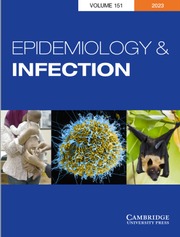Article contents
Experiments on the Pasteurisation of Milk, with reference to the Efficiency of Commercial Pasteurisation
Published online by Cambridge University Press: 15 May 2009
Extract
Pasteurisation at 62.8° C. (145° F.) for 30 minutes leads to a marked reduction in the total bacterial content of milk, varying for different specimens from 94 to 99·8 per cent., when the process is carried out under the most exact conditions. At lower temperatures, e.g. 60° C., the percentage reduction may vary widely—from 51·6 to 97·4 per cent. The percentage reduction has been found to be slightly less when the same specimens of milk are pasteurised in a large scale apparatus than when treated in small quantities under laboratory conditions, the average reduction being 91·2 per cent, in the former case and 98·4 per cent, in the latter. The reasons for this are discussed.
An effectively pasteurised milk should not contain lactose-fermenting bacilli in 1 c.c, and the B. coli content is a valuable index of the efficiency of a pasteurising process.
Milk containing B. tuberculosis, when pasteurised at 62·8° C. for 30 minutes (1) in tubes in a water bath in the laboratory, and (2) on a large scale by a commercial plant, is rendered non-infective to guinea-pigs. By laboratory pasteurisation, even at 60° C. for 30 minutes, milk containing tubercle bacilli is rendered non-infective.
Information
- Type
- Research Article
- Information
- Copyright
- Copyright © Cambridge University Press 1926
References
REFERENCES
- 7
- Cited by

